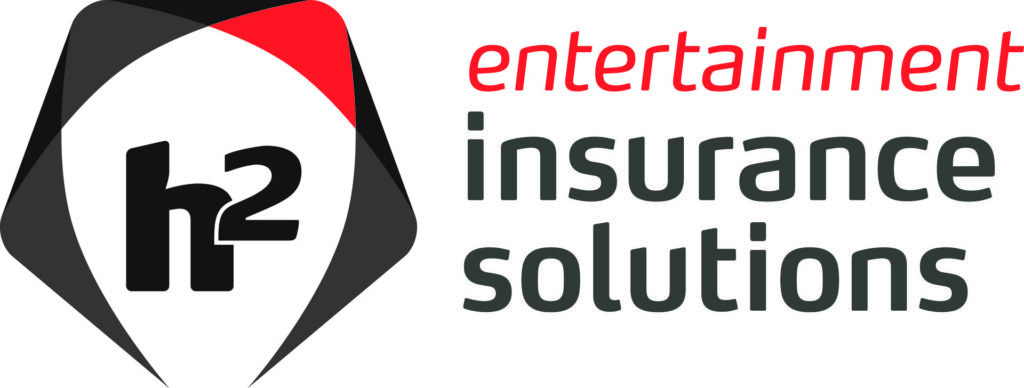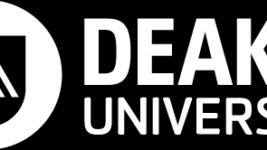News
27 Jul 2021
Pandemic Recovery – is your insurance fit for purpose?

Subscribe to CX E-News
With many companies emerging from COVID hibernation, it’s time to check that any insurance policy you paused is re-activated. And while you’re at it, it’s worth checking if your equipment really is covered for what you do and how and where you do it. We chatted to Jason Holmes and Chris Arif-Ball of production insurance specialists H2 Insurance Solutions and discovered there’s a lot of policies out there that don’t cover what you think they cover.
“Insurance is an intangible product,” says H2 Insurance Solutions’ Director Jason Holmes. “You can’t see or touch it. Insurance is a promise to pay, and it’s got to be good when you need it. Most people want to do a ‘tick and flick’ with insurance, and that’s sometimes OK for liability insurance, as long as you make sure it covers your occupation. But with equipment insurance, there’s a lot of differences between one policy and another, and the cover they provide.”
Jason sees that the main risk to production companies is the fine print in policies, sold by generalists, that don’t cover equipment in the course of the actual work it does. “We’ve seen a lot of policies that don’t cover gear adequately once it leaves the warehouse,” explains Jason. “In the warehouse, the major risk is fire or burglary. Once moving, there’s risk in lifting on or off the truck, or in transit. Once its on site, there’s more risk. Some policies don’t cover gear while being ‘assembled or dismantled’, which means during set-up or pack down. Sometimes policies don’t even provide cover away from the warehouse. Some don’t cover absconding by the hirer. One of our options doesn’t exclude that, and I believe every other policy in the market does.”
“We’ve found a lot of policies out there where coverage ends as soon as the truck arrives at the venue,” adds Chris Arif-Ball, Senior Account Manager at H2 Insurance Solutions. “So, once the bump-in’s done and everyone’s gone home for the night, if there was fire in the venue, there’s no cover.”
Something that has become very clear during the pandemic is that government and business largely have no idea how the live production ecosystem operates, or are even aware of its existence. “I grew up playing as a drummer, then doing PA, lighting, and event management,” relates Jason. “I see the whole industry. The problem is most insurance people have no idea what any of us actually do or how we do it, and so can’t advise correctly. Most insurance brokers just want to be everything to everyone. I feel I need to take some insurers out onto sites so they can see what happens when a truck gets unloaded, or when the chain motors go in. This is how brokers end up selling policies that only cover gear in warehouses, or transit policies that don’t cover gear at bump in or out, or left on-site for more than a day. They don’t get it, so they don’t even know what questions to ask.”

Opening Back Up
“A lot of people suspended or cancelled their insurance during the pandemic, thinking it was a cost that they would just have to risk,” outlines Jason. “Now they’re moving gear out of the warehouse again, and they need to make sure the cover is re-activated, and right.”
“When COVID hit, we restricted client’s insurance to ‘warehouse only’ in some cases,” expands Chris. “If you’re getting back out and doing gigs, check your territorial limits to make sure you’re covered. For example, we did a lot of ‘laid up cover’ for customer’s vehicles, which meant they were only covered at the base of operations. That saved client’s money, but if they’re back in use, you do need full cover.”
“A lot of people moved to ‘laid up’ cover, and then forgot they did it,” agrees Jason. “Some clients chose to keep all of the fleet insured so if they took one around the block, had a delivery, or an unexpected bit of work, they didn’t have to worry. Hopefully everyone’s remembered if they reduced their cover. Please though, if you’re moving again, make sure you are re-insured.”
Establishing a New Company
If anyone’s game enough to start out in production in the current environment (and some have; disruption makes for innovation) what are Jason and Chris’s tips on where to start with insurance? “First, contact an insurer who specialises and is established,” recommends Jason. “Find out who insures someone you respect. You will know if they’re any good when they ask a lot of questions about your business activities and your experience.”
“I would ask a prospective customer exactly what services they are providing,” offers Chris. “Is it just hire, or do you do sales? Are those sales installations? For example, pure sales are lower risk than installations. We present to our liability insurer on that basis, and that’s how we get a competitively priced premium. You’ll need to put together a full equipment schedule, a summary of the gear, its total replacement value, and I cannot stress enough the importance of insuring for full value. In some policies, there’s an underinsured clause, where if you haven’t insured the gear for the right value, you don’t get paid. I’ll also want to know where the equipment will be used; does it go overseas or Australia-wide? And where do you store it? I’d also have a conversation about any other insurance products you might need – vehicles, management liability, and public liability, for example.”
Insurance Check-Up
If you’re already up and running and want your insurance checked for price and suitability, it’s worth getting a second opinion. “When a new client approaches us, we ask for copies of their current policies,” says Chris. “They can cover up the prices if they so wish, because we don’t need that to assess the policy. It’s not until you look at the fine details and T&Cs that we begin to see exclusions like absconding, set-up, installation and so on. That’s usually where we see improvement is required.”
Exclusions, Documentation, Details

It’s exclusions that are the real devil in the detail, and they’re much more common than you’d think. “We look after a lot of promoters,” says Jason. “We had a case recently where one was contracting security. We told the promoter we needed to see the security company’s certificate of currency. We looked at it, and the exclusions said they weren’t covered for event services or security at open air events. The promoter’s event was an outdoor music festival.”
“I’ve got another one,” continues Jason. “There was a scaffolding company coming in to do staging and scaffolding. When we got their certificate of currency, it excluded works on stages, lighting towers and so on. The organiser complained that the other company who quoted was covered properly but cost more. That’s the difference between someone that’s doing it properly and someone that’s not.”
The exclusions were most likely not entirely the fault of the insured, and are just as likely to have arisen out of a misunderstanding by the broker. “You have to make sure the business description of what you do is clear and correct in your insurance,” emphasises Jason. “If you do staging and it’s not clearly stated, where does that leave you?”
“I’ve seen someone described as audio engineer, when they’re actually a hire company,” Chris adds. “Some insurers have online quoting platforms with a set list of occupations. If they don’t get it, and you select ‘audio engineer’, you’ll get a competitive quote, but it will be completely wrong. Some sole traders that work for production companies don’t hold public liability insurance. A common misconception is that they’re automatically covered by a production company’s public liability. As standard, it’s only PAYG employees that are covered by the employing company’s public liability, unless there’s a specific extension applied. That comes up a lot.”
As we all come back onto stages and into the lights, blinking at the brightness after our COVID hibernation, Jason, Chris and H2 Insurance just want to make sure that anything avoidable can be avoided. “Our industry’s already been through enough,” intones Jason. “A lot of companies are close to the edge, and if anything happens and they’re under insured or not covered properly, that’d be the worst. We need people to be informed.”
Subscribe
Published monthly since 1991, our famous AV industry magazine is free for download or pay for print. Subscribers also receive CX News, our free weekly email with the latest industry news and jobs.






